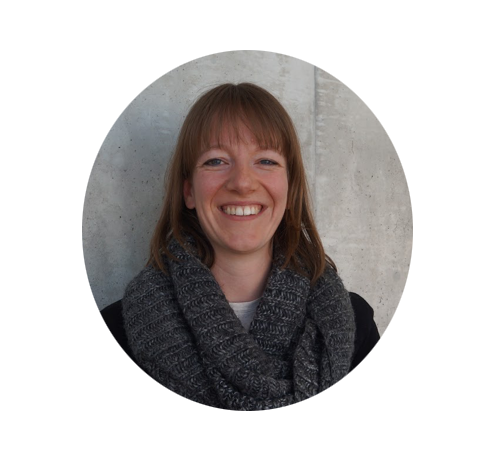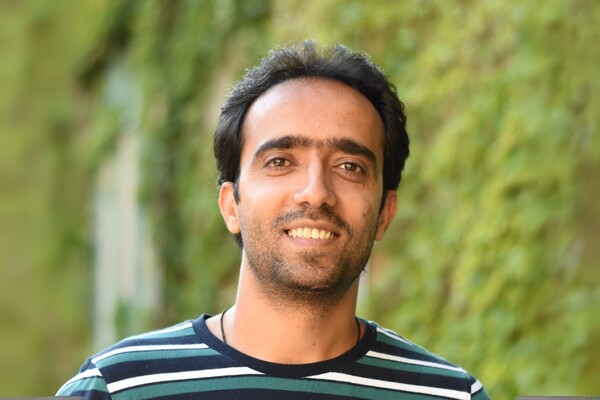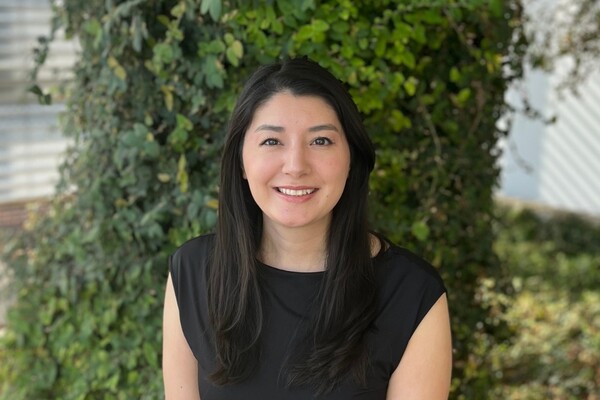Main Second Level Navigation
Moving on From Postdoc to Faculty, Here’s What You Need to Know

Landing a faculty position is no mean feat at a time when record numbers of candidates with postgraduate training are vying for scarce university research posts. But Jolanda van Leeuwen is one of the lucky few. Nearing the end of her postdoctoral stint in Professors Charles Boone and Brenda Andrews’ labs in the Donnelly Centre, van Leeuwen is getting ready to move to Switzerland early next year to start her own research group as an assistant professor at the Center for Integrative Genomics at the University of Lausanne.
van Leeuwen joined the Donnelly Centre in 2011, after obtaining a PhD from VU University Amsterdam in the Netherlands, where she is from. During her postdoc, she investigated in yeast cells a process known as genetic suppression, which is when harmful effects of some genetic mutations are masked by other fortuitous misspellings in the genome, publishing her findings in Science last year. In her own lab, van Leeuwen plans to uncover similar beneficial mutations in human cells that could help explain why people who have a same disease-causing gene do not get sick to the same extent.
Here, she shares insights on how her postdoc experience prepared her for the competitive job market and advice for others looking to follow suit.
Was becoming a principal investigator (PI) always part of the plan?
I came to Toronto with the idea that I would want to have my own lab one day. But it was only a year ago that I realized that this might really happen. I’m not a type who’s really confident anyway so I always thought I wanted to try to become a PI but I was never sure that I would be successful at that. When I had my Sciencepaper of course I knew I had a better chance of finding a job. But even then, I only had one paper after five years of postdoc so I was not sure that that would be good enough. I didn’t do my PhD at a well-known institute, and although I did publish quite a number of papers during my PhD, none of them were in high-impact journals. My advisor Charlie Boone was far more convinced early on that I would become a PI!
What would you say to graduate students who are close to completing their PhDs and who wish to become PIs?
Make sure you finish all your PhD work before you graduate. One of the things that’s really important is your graduation date, not only for postdoc fellowships but also now for early career grants. If you graduate early and take another year in the lab as a postdoc to finish your work then that’s a year lost. If you want to stay in academia, it’s better to stay a graduate student a year longer than convert to a postdoc.
When choosing a postdoc, I normally say to people to switch gears a little bit – either change the model organism you’re working on, or the research topic. In that way, you’ll still have something that you are familiar with, but at the same time you’ll learn something new and broaden your expertise. In my case, I had worked with yeast cells previously in my PhD, but I did not have much experience in yeast genetics. So, my main goal for my postdoc was to learn genetics, especially large-scale genomics and Charlie and Brenda’s labs are among the best yeast genomics labs out there. This way I could combine learning new things while still working with a familiar organism.
What is it that postdocs need to be aware of when looking for faculty jobs?
For some positions, you do not have to wait to have published all your papers before you start applying for them. You are mainly judged on the strengths of your research proposal, which normally includes past and current research. Even though I only had one paper published, I wrote the results from the second paper that I am still working on, so that the candidate selection committee could see there’s more to come from my postdoc. I have also written reviews as the first author and that helps boost your CV too.
And I think one of the things that helped me a lot is that I think I had quite a good network. Some interviews I got may have been partly thanks to the fact that I already knew some of the PIs on the search committees from conferences or other meetings. So, it’s helpful to choose a well-connected lab for a postdoc and also to go to conferences a lot where you can meet people.
Also, don’t get discouraged by all the negative stories you will hear about the faculty job search. Don’t think about it too much and just apply!
What were your criteria in choosing the right university?
I was open to both staying in North America and moving back to Europe. What was very important to me was to find an institute that’s of a decent size, with access to good funding and students and without too much teaching duties so that I could focus on my research. And it had to be in a city where my partner would be willing to move to and find work easily.
What was the process of applying for jobs like?
I started applying for positions about a year ago. But even in the years before, there were already PIs from various institutes telling me at meetings that they had an opening coming up or that they might be looking for someone like me in the next round of recruitment. So, there were a few positions that I was aware of. But for most job openings, I saw them in Nature jobs or Science careers. I applied to nine positions, which I think is relatively low as I know several people that applied to about 50. Then I interviewed at three of them. The offer I got from Lausanne was a good one, otherwise I would have searched more.
What were the interviews like and how did you prepare for them?
The interviews normally lasted 1-2 days, and in general consisted of a meeting with the director of the institute, a seminar about my previous work, a chalk talk about my research plans, one-on-one meetings with the faculty members in the institute, and dinner with the search committee.
In the one-on-one meetings, mostly the faculty members would just talk about their research. These meetings were also a good moment to ask questions about the research environment, and I usually asked about collaborations within the institute, obtaining funding, attracting good students/postdocs, facilities, etc. Every now and then a faculty member would have a list of questions prepared and would conduct an in-depth interview, but those were exceptions.
Often there was also a lunch or meeting with students and postdocs. I used those meetings to ask what they liked or did not like about living in the country/city where the institute was, and about working/studying at the institute. This can be really insightful. Mikko Taipale did this when he interviewed here, and I remembered that.
Also, I had great support from a lot of people in Donnelly in preparation for the interviews. I gave a practice talk and it almost felt like half the building showed up. The point of the practice talk was to polish everything and make sure that people from different backgrounds would understand my research. For my chalk talk, I mainly prepared by talking one-on-one to PIs and they would ask me all kinds of questions.
Do you plan to collaborate with your colleagues at Donnelly?
For sure we will collaborate on some things but because I am on a tenure track position, anything that I publish together with Charlie and Brenda does not count towards my tenure so I’ll have to establish myself independently.
What about experiments, do you plan to continue running them yourself?
Initially for sure. I will try to keep some experiments going but I’ve already noticed that it’s hard to combine lots of travel and meetings with bench work, especially when you’re working with human cells. But I’ve been given advice from a lot of people to keep doing experiments in the beginning because you are your own best employee at the bench and it helps teach your students and technicians.
Follow us on Twitter to keep up with Donnelly Centre news.
News



